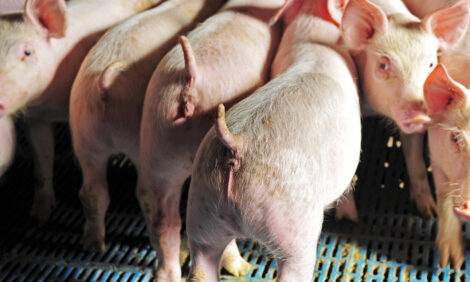



Predicting the impacts of the first ASF outbreak in China
As China confirms its first ever cases of ASF, the economic and health status of the Chinese pig industry is under scrutiny. Angela Zhang, IQC Insights, provides a current and future outlook for 2018
As diagnosed by China Animal Health and Epidemiology Center at 5pm on 2 August 2018, the first suspected case of African swine fever (ASF) has been found in the Liaoning Province of northeastern China. The case was further confirmed by Liaoning Bureau of Animal Health and Production at 11am on 3 August 2018, and it is thought that the infected pig farm has a total stock of 383 pigs with 47 having died from ASF. At the time of reporting, 913 live pigs have been culled in the surrounding area of Shenyang City.
Following the outbreak, China’s Ministry of Agriculture and Rural Affairs (MOA) initiated its “level two” emergency mechanism to block, cull and inoculate pigs and relevant waste. It has also banned the transport of pigs in and out of the infected area in Shenyang City.
On 3 August 2018, China’s General Administration of Customs announced a set of regulations under a “Warning Bulletin to Strengthen Prevention and Control of ASF”. The measures make the examination of imported goods and passenger belongings by customs authorities much stricter, especially for those travelling from ASF-infected areas. If any swine or wild boar or any pork products from an infected area are found, they are to be returned or destroyed immediately.
Shenyang, the infected area, is the capital city of Liaoning Province. According to the local statistics bureau, pork production in Liaoning Province reached 2,209,000 tonnes in 2017, occupying 4.1 percent of total pork production in China. After the outbreak, not only has transportation of live pigs in and out of Shenyang been officially banned, but also pig sales in the three provinces of north-east China (Heilongjiang, Jilin and Liaoning) has been negatively impacted. Domestic pork wholesalers and food-processing plants are keeping away from the above three areas and purchasing live pigs from other provinces.
In our quarterly pork report Q2 2018, we have analysed the impact of a potential ASF epidemic on domestic pork supply. The epidemic scope index (an internal IQC index tracing the scope of the general epidemic outbreak for China’s pork industry) hit a record high in December 2017. This caused a low survival rate of piglets and a decrease in sows and live pig inventories in Q2 2018. Correspondingly, the domestic pork price started to rebound drastically from the middle of May 2018 onwards.
Nevertheless, we should note that in the current case of ASF, its impact is different from the general one in December 2017. At present, the outbreak is limited to a local community in Shenyang City. Despite a rumoured halt in production in some local pork-production operations, their volume is negligible compared with the total domestic pork production over the long term. The major consequences of ASF are more likely to be related to short-term pork-consumption demand, especially in and around the inspected areas.
Although China’s MOA has stated that, unlike in the case of the bird flu, it is not possible for humans to be infected by ASF, some local meat consumers might stop buying and eating pork in the short term, to be on the safe side.
In short, the ASF outbreak has caused some negative impacts on local pork production and consumer demand, but so far, the effects remain under control. It will depend on the outbreak’s progress whether ASF materially affects domestic pork production, import and price. Watch this space.
By Angela Zhang
For more data and insights related to China's pork market, please visit and subscribe at IQC Insights here







